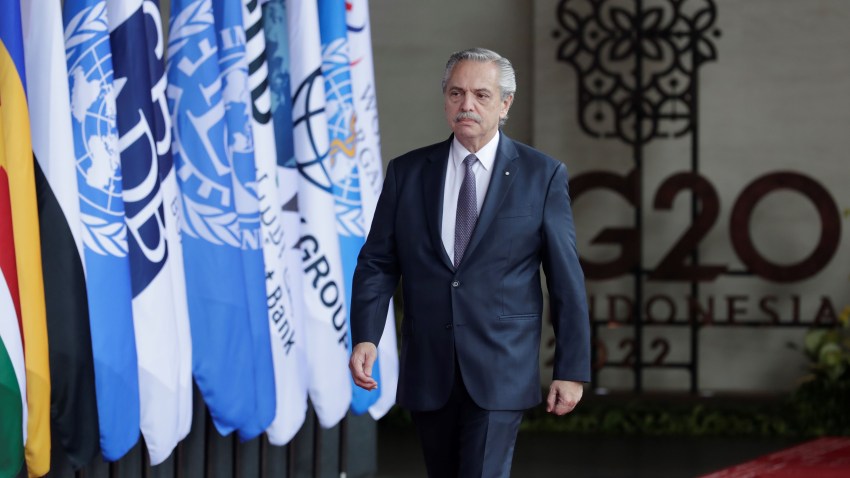On the sidelines of last week’s G-20 leaders’ summit in Bali, Indonesia, Argentine President Fernandez struck a deal with his Chinese counterpart, Xi Jinping, to increase their two countries’ current currency swap program. China will make an additional 35 billion yuan, approximately $5 billion, available to Argentina’s Central Bank to use as part of its foreign currency reserves, on top of the 130 billion yuan, or $18.5 billion, currently available. Even before the recently announced increase, the currency swap agreement with China accounted for over half of Argentina’s currency reserves.
Argentina’s $8 billion trade deficit with China means that the additional currency swap won’t even cover a year’s worth of trade between the two countries. But the cash will come in quite handy to Fernandez’s government, which is spending Argentina’s reserves in an attempt to defend the peso and provide local companies with limited dollars for foreign exchange, ahead of the country’s presidential election next October.
The move wasn’t the only recent currency-related agreement between China and Argentina. This month, they also began a program to price cross-border trade in yuan. On the positive side, Beijing views these swaps and currency agreements as an opportunity to expand the international use of the yuan in a controlled manner and lock in trading relationships with key trading partners. They also make it easier for Chinese producers to import much-needed commodities from Argentina and export Chinese goods to a market of about 45 million people. Finally, it’s a subtle dig at the international dominance of the U.S. dollar, though that impact is fairly limited.

